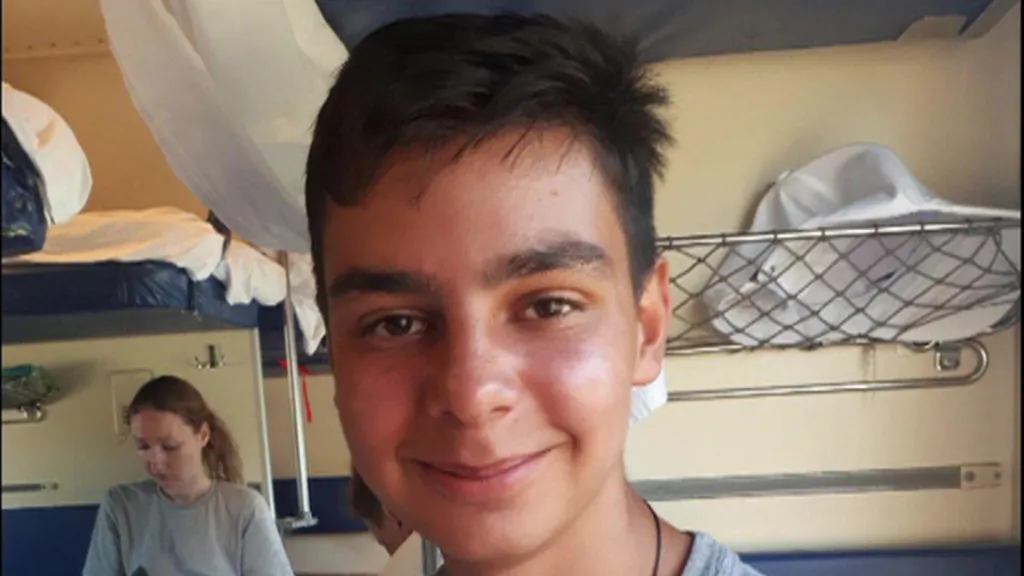
Arseny Turbin, a 16-year-old from Russia, remains behind bars after losing an appeal to overturn his five-year prison sentence. His case has drawn international attention as one of the most prominent examples of the Russian government’s crackdown on dissent following the invasion of Ukraine.
Arseny was just 15 years old when he was arrested in the summer of 2023. Authorities accused him of joining the Freedom of Russia Legion (FRL), a paramilitary group made up of Russian volunteers who are fighting alongside Ukrainian forces against the Russian military. The FRL, which Russia has labeled a terrorist organization, has been a symbol of anti-Putin resistance, and any association with it carries severe consequences under Russian law.
The court reduced Arseny’s sentence by only 24 days, leaving him with the prospect of spending the next several years in a juvenile detention center. His case is part of a broader trend in which minors have been subjected to politically motivated criminal charges. Since the Russian invasion of Ukraine, at least nine minors have been prosecuted for anti-government activities, according to the human rights group OVD-Info.
Arseny has consistently denied all charges. He claims he only researched the Freedom of Russia Legion but never joined it or participated in any illegal activities. His mother, Irina, has also maintained his innocence, expressing disbelief at the court’s decision. “I don’t understand the judge who handed down this sentence,” she told the BBC.
The charges against Arseny included distributing anti-Putin leaflets on behalf of the FRL. Arseny admitted to handing out leaflets but insisted that he acted independently and not under the direction of any group. He was also known for criticizing the Russian invasion of Ukraine and President Vladimir Putin’s policies, both in school and on social media. Arseny often shared posts from opposition figures and even staged a solo protest in support of the imprisoned opposition leader Alexei Navalny.
Despite his public political activity, Arseny maintained that he did not engage in any form of organized opposition. However, after his home in the town of Livny was searched by agents of the FSB, Russia’s security service, the authorities accused him of being a member of the FRL. During the search, his electronic devices were seized, and he was later interrogated without a lawyer present. Arseny’s mother, who was distraught by the events, suspects that the FSB may have fabricated a confession that her son never made.
Schoolmates who were questioned by investigators stated that Arseny had openly criticized Putin and Russia’s actions in Ukraine, but none of them mentioned any connection to the Freedom of Russia Legion. Despite this lack of evidence, Arseny was arrested in September 2023 and held in detention for several months before being formally sentenced.
During his time in custody, Arseny’s mother has observed a significant decline in his health. His weight dropped dramatically, and he became emotionally withdrawn. At one point, he was placed in a cell with a violent cellmate who attacked him. This period of detention has taken a toll on the teenager, and his mother remains deeply concerned about his physical and mental well-being.
Arseny had always been a bright and ambitious student with an interest in science, particularly physics and economics. His mother recalls that he dreamed of studying political science at a top university in Moscow, hoping to contribute to improving life in Russia. Arseny’s strong sense of justice, which developed after he endured bullying at school, led him to speak out against the government’s actions. However, his outspoken nature has now cost him his freedom.
Since his arrest, Arseny has lost most of his friends, as many have distanced themselves from him out of fear of reprisal. His family has faced similar social isolation, with neighbors and coworkers accusing Irina of raising a “terrorist.” These judgments reflect the climate of fear in Russia, where any dissent against the government can result in persecution, not just for the individual involved, but for their families as well.
Irina often tries to explain to those who criticize her son that the Russian judicial system does not operate impartially. “If you don’t experience the system yourself, you won’t understand it,” she says, adding that she hopes others never have to encounter it.
As Arseny faces the prospect of spending several more years in a juvenile detention center, his mother continues to advocate for his innocence. The case has raised alarms about the shrinking space for political freedom in Russia, especially for the youth who are increasingly being targeted for expressing dissent. For now, Arseny’s fate remains uncertain, and his family continues to fight for justice in a system that seems increasingly unforgiving of any opposition to the Kremlin’s authority.





